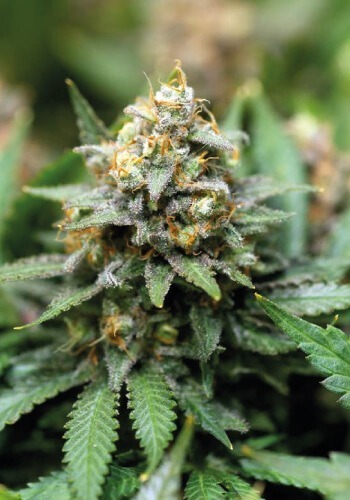Swiss Cheese Genetics
Swiss Cheese’s Skunk#1 heritage makes her a unique indica because of the relatively unusual profile of the Skunk#1 phenotype. This profile lead Skunk#1 to be smuggled out of the UK and into Amsterdam for further exploration. The result of her parent genetics makes Swiss Cheese a standout strain that everyone should try at least once.
Swiss Cheese Terpene Profile
If you aren’t willing to share, don’t pull out Swiss Cheese at a crowded party. Her unique, dank aroma is pungent and sweet and doesn’t lend well to stealthy smoking in a social setting. Her taste is true to her name, cheesy and peppery just like actual Swiss cheese.
Swiss Cheese Effects
Swiss Cheese is perfect for sparking lively debate during a dinner party or chill session with good friends. You’ll find yourself clear-headed and calm, lending well to good conversation as she opens your eyes to new perspectives while guiding you towards common ground.
Medical Benefits Swiss Cheese
Nirvana Seeds lists Swiss Cheese as a high CBD, medium THC content strain, making her ripe with medical possibilities. For depression sufferers, the lower THC levels will help avoid unwanted paranoia while the high CBD levels will boost your mood. High CBD is also known to relieve pain and can therefore be used to reduce discomfort as a result of menstrual cramps, migraines, or general aches and pains.
How to Grow Swiss Cheese
Don’t let the name fool you- Swiss Cheese has some thick, dank buds and certainly won’t disappoint in yields. To get optimal results from this strain, use a SOG method and grow indoors or outdoors. Swiss Cheese may not be suited for beginners because of her strong odour, which can be difficult for newbies to disguise when growing indoors. If you have relative privacy, growing outdoors is also an excellent option because Swiss Cheese is a hearty strain that can stand up to the weather. In around 7-9 weeks you’ll see dense, cheesy buds forming. You can expect a medium-sized yield from Swiss Cheese.

